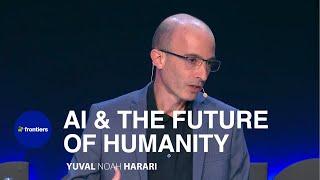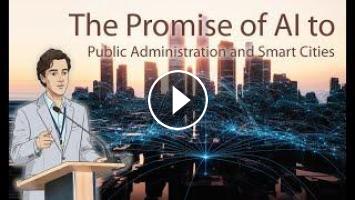Welcome to the 35th episode of The Smart World Around Us, brought to you by Smart-EDU Hub!
In this episode, we map the promises and implications of Artificial Intelligence (AI) for public administration and smart cities through the lens of smart governance—a step beyond traditional e-government.
What’s inside:
- Key definitions: digital governance, AI, and how smart governance differs from e-government.
- Tangible benefits of AI:
-- operational efficiency and process automation;
-- data-driven decision-making (analytics, prediction, optimal resource allocation);
-- improved, citizen-centric public services.
- Critical challenges:
-- ethical (algorithmic bias, fairness),
-- legal (compliance, accountability),
-- social (public acceptance, skills, transparency).
- Real-world applications:
-- health (smart triage, prevention),
-- traffic (dynamic management, road safety),
-- waste (optimized collection, monitoring),
-- education (personalization, data-assisted assessment).
- Responsible implementation: data governance, auditability, clear KPIs, and sustained investment in people and infrastructure.
Key takeaway: AI can profoundly transform governments and cities—if deployed with rigor, transparency, and a strong ethical framework that keeps the citizen at the center.
Promisiunile Inteligenței Artificiale (AI) Administrației Publice și Orașelor Inteligente
Author: Catalin Vrabie
Link: https://www.scrd.eu/index.php/scic/article/view/482?articlesBySimilarityPage=16
???? Like, comment, and subscribe for more conversations on smart governance, data-driven policy, and the cities of the future—only on The Smart World Around Us by Smart-EDU Hub!
In this episode, we map the promises and implications of Artificial Intelligence (AI) for public administration and smart cities through the lens of smart governance—a step beyond traditional e-government.
What’s inside:
- Key definitions: digital governance, AI, and how smart governance differs from e-government.
- Tangible benefits of AI:
-- operational efficiency and process automation;
-- data-driven decision-making (analytics, prediction, optimal resource allocation);
-- improved, citizen-centric public services.
- Critical challenges:
-- ethical (algorithmic bias, fairness),
-- legal (compliance, accountability),
-- social (public acceptance, skills, transparency).
- Real-world applications:
-- health (smart triage, prevention),
-- traffic (dynamic management, road safety),
-- waste (optimized collection, monitoring),
-- education (personalization, data-assisted assessment).
- Responsible implementation: data governance, auditability, clear KPIs, and sustained investment in people and infrastructure.
Key takeaway: AI can profoundly transform governments and cities—if deployed with rigor, transparency, and a strong ethical framework that keeps the citizen at the center.
Promisiunile Inteligenței Artificiale (AI) Administrației Publice și Orașelor Inteligente
Author: Catalin Vrabie
Link: https://www.scrd.eu/index.php/scic/article/view/482?articlesBySimilarityPage=16
???? Like, comment, and subscribe for more conversations on smart governance, data-driven policy, and the cities of the future—only on The Smart World Around Us by Smart-EDU Hub!
- Category
- Artificial Intelligence & Business












Comments